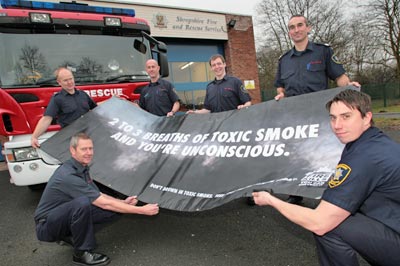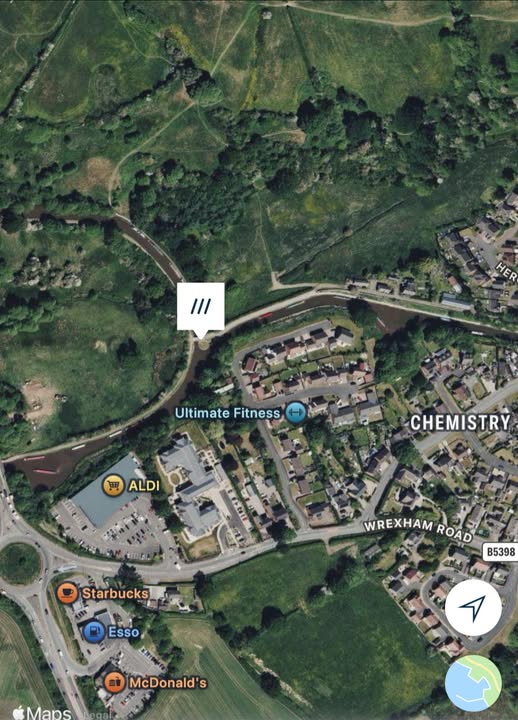Get a smoke alarm and test it weekly – that is the stark advice to Shropshire residents from county firefighters to avoid dying from toxic smoke in a house fire.
Just two to three breaths of toxic smoke and “you’re unconscious,” warned community fire safety officers at Shropshire Fire and Rescue Service.
“Toxic smoke affects your ability to breathe. It is a sensation similar to drowning,” said John Das Gupta, Head of Fire Prevention.
Last year a 21-year-old Shropshire student was critically injured after suffering toxic smoke inhalation.
He recovered in hospital after being rescued from Liverpool Hope University by firefighters who said that he was very close to death when they found him unconscious and not breathing in a kitchen surrounded by toxic smoke. Firefighters revived him after getting to him within a minute of arriving on the scene. The fire may have started from a chip pan.
In a house fire last year in Shrewsbury, a young woman was rescued from under a duvet trapped in her bedroom after smoke and flames took hold of the terraced home. Firefighters were later commended for the brave rescue in which the woman had less than a minute before she would have succumbed to the smoke.
“If you do not have a working smoke alarm and test it weekly then you do take the risk of literally drowning in the smoke of a house fire. Smoke takes hold devastatingly quickly. It takes you completely by surprise and the only way to get a warning, especially if you are asleep at night, is with a smoke alarm,” said Mr Das Gupta.
People vastly underestimate the impact of toxic smoke, said Mr Das Gupta.
In a national survey, almost half of people polled thought they could survive for more than two minutes in a smoke filled room.
“This is unlikely, toxic smoke can kill a child in under a minute,” said Rabinder Dhami, Team Leader in Community Fire Safety at Shrewsbury fire HQ
Residents also wrongly believed that the smell of smoke would alert them when, in reality, gases and smoke from a fire numb the senses and put you into a deeper sleep.
A fifth said that either their dog or another member of the household would raise the alarm.
“The only thing you should rely on is a working smoke alarm. It buys you time for you and your family to get out,” said Mr Dhami.
People living in homes without a smoke alarm are more than twice as likely to die in an accidental house fire, he revealed.
Residents should fit a smoke alarm on each level of their home, test alarms weekly, plan an escape route, and check electrical appliances are safe in the kitchen as this is where most house fires start.





